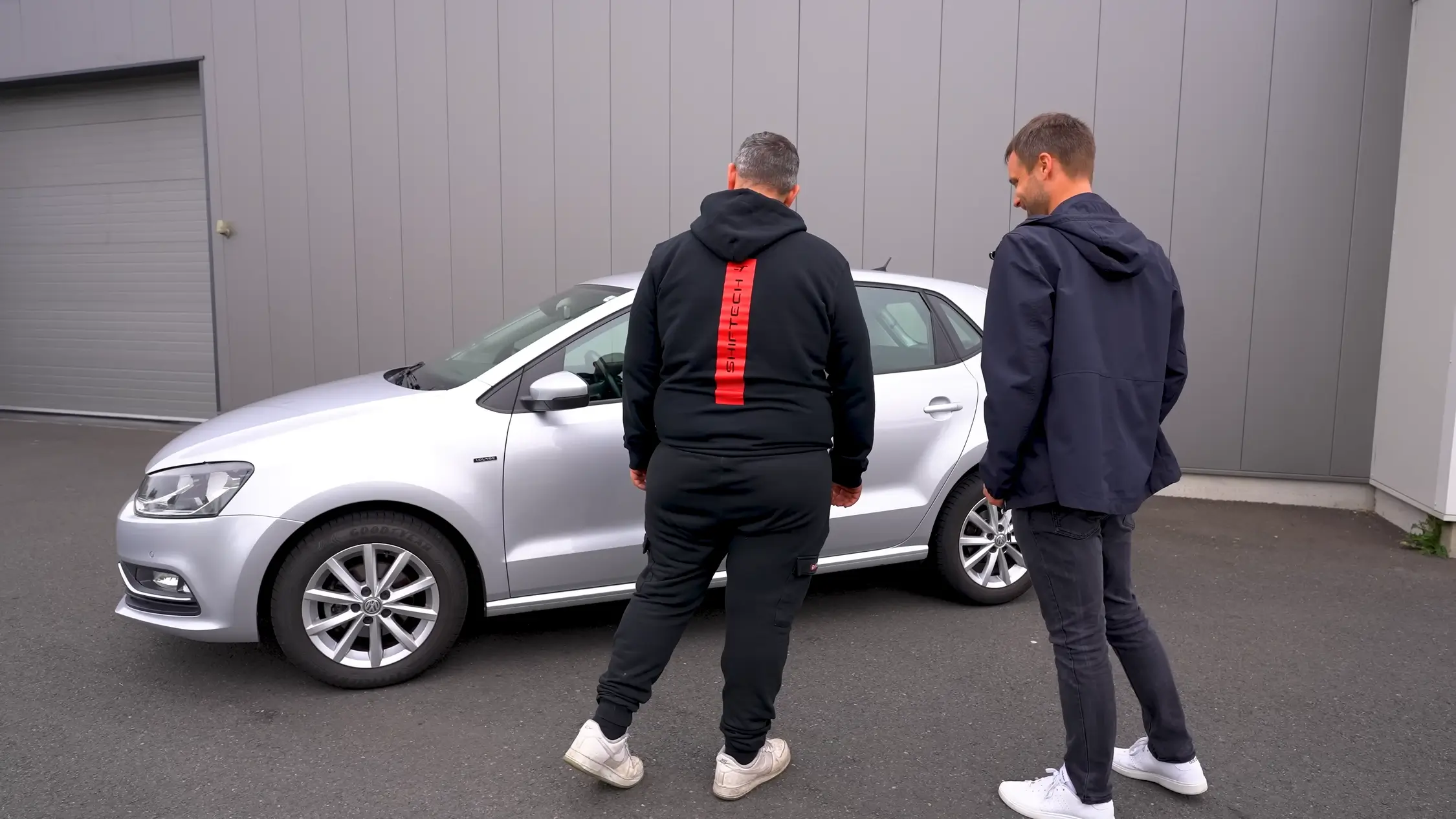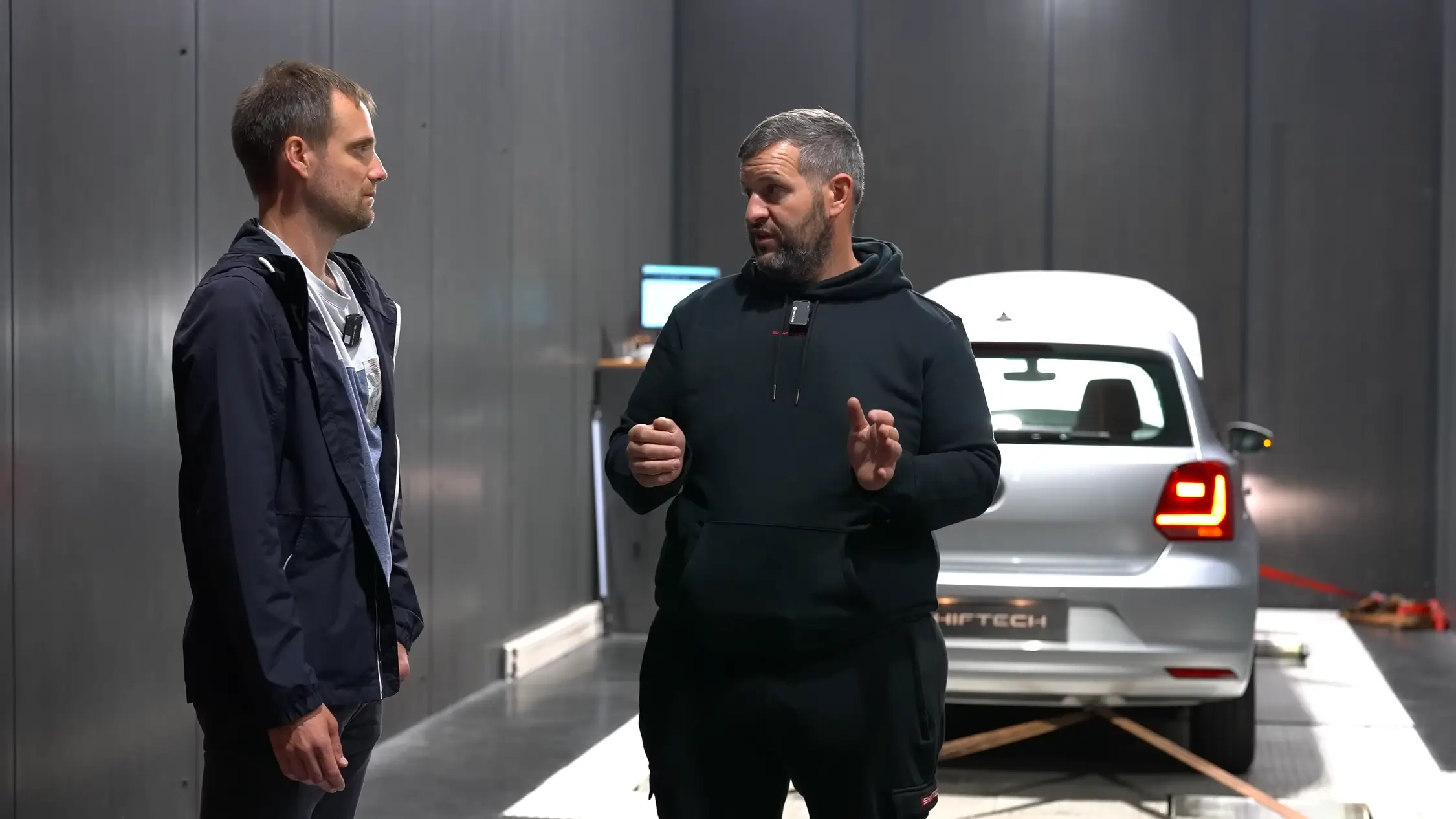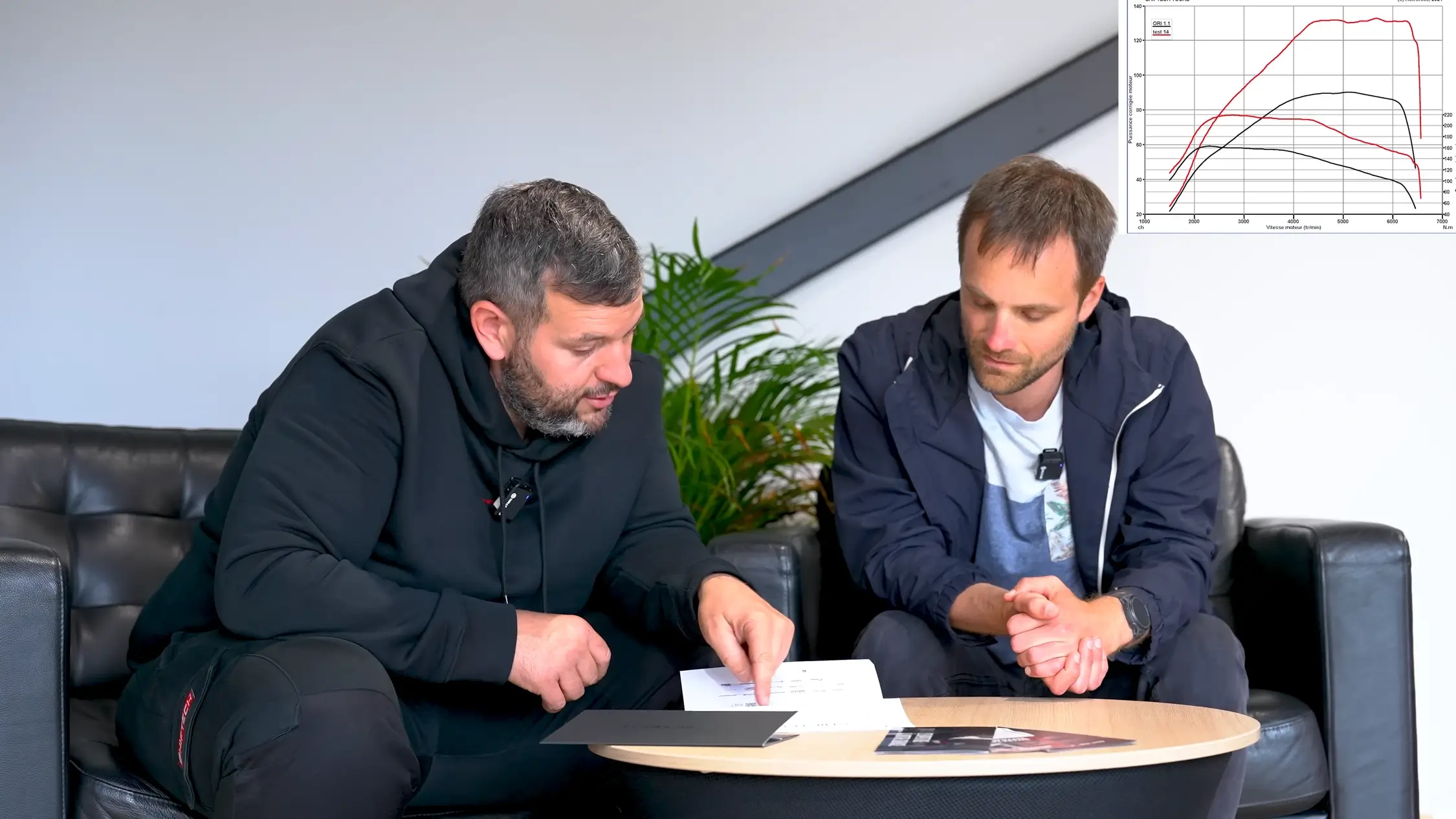
To prepare or not to prepare? Optimising a city car: the right choice or an unnecessary expense?
In this episode of the Prépa ou Pas series, the team proposes a simple and transparent approach: select a customer who has come to re-programme their car and get their honest opinion after a road test. This time, it's a Volkswagen Polo 1.2 TSI, a simple city car, that takes the test. But the question is: on a vehicle of this type, does reprogramming the engine really make a difference?

More torque, more power, greater driving pleasure
Xavier, the customer of the day, uses his vehicle from point A to point B. He's not really what you'd call a car enthusiast. His Polo 1.2 TSI 90 hp, bought new in 2016, is for him just a daily transport tool. His choice was dictated by reason: a sufficient engine, decent fuel consumption and sufficient space for his use, particularly for transporting his bike. Over time, however, he has come to realise that his car has certain limitations. What he's looking for is more flexibility, smoother driving and, if possible, a little more fun without sacrificing reliability or fuel consumption.
His aim is not to transform his Polo into a sports car, but to correct the shortcomings he perceives in everyday driving: a slightly sluggish acceleration, frequent gear changes due to a hollow engine at low revs, and a driving style that can sometimes be frustrating in town or on the open road.

Why does an optimisation on a Polo 1.2 L TSI make sense?
The engine in this Polo is a turbocharged 1.2 TSI 4-cylinder. This is an essential point: thanks to the presence of the turbo, the engine can be optimised without any mechanical modifications. By modifying the electronic management system - the famous 'ECU' - the engine can be used more efficiently, without compromising its reliability.
In its original version, this Polo develops 90 bhp and 160 Nm of torque. This engine is renowned for its sobriety, but it has one major drawback: its torque is available late in the day, forcing the driver to rev up the engine to get a proper acceleration. In everyday traffic, this results in a feeling of slowness and a lack of responsiveness, which is problematic in certain situations such as merging or overtaking.

On the bench: taking out her horses?
Before any reprogramming, the vehicle was put through its paces on the power bench. The result: Xavier's Polo complies perfectly with the manufacturer's figures, with 91 bhp and 161 Nm of torque measured.
This test also enabled us to visualise the power curve: the engine delivers its full power high up the rev range, with very limited torque below 2,000 rpm. This explains Xavier's impression that the car doesn't behave very dynamically, especially in urban areas.
This is precisely where stage 1 engine optimisation comes into its own. Without modifying the engine or changing any mechanical parts, the technicians adjust the mapping to :
- Lower the speed at which torque is available,
- Extend useful power,
- Smooth out the revs.
A BMC air filter is added as a complement: not for a significant gain in power, but for simplified maintenance thanks to its ability to be cleaned and reused.

Results after reprogramming: more than just figures, a new way of driving
After optimisation, the results are clear: 133bhp and 219Nm of torque. But that's not the whole story. On the road, Xavier immediately noticed a noticeable difference: the engine became more available from low revs. The ride is smoother. You don't have to force the engine to pick up the pace, making the experience not only more pleasant, but also less tiring. This change transforms the Polo into a more responsive, more serene car, without going overboard or becoming too sporty.
What surprises Xavier is how much smoother his car feels to drive. Where he used to have to downshift, he can now hold his gear. He's more confident when pulling in and overtaking, and his fuel consumption should even fall slightly when driving smoothly, thanks to the torque that's available sooner (for the same amount of driving).
Contrary to popular belief, engine reprogramming is not just for those looking for performance. In the case of a city car like this Polo, the main aim is to correct usage faults and improve everyday driving comfort.
So, prep school or not?
Xavier wasn't looking for more power for the sake of it, but to make his car more suited to its actual use. The Stage 1 reprogramming was the answer: the Polo is now more pleasant to drive, smoother and more fluid, without requiring a heavy mechanical investment.
when asked "Prep or not? "Xavier answers without hesitation: yes, prepa. As he says himself, "you'd have to be mad not to prefer it reprogrammed". Not for the pleasure of performance, but for the comfort and efficiency of everyday life. A simple, pragmatic answer, just like its owner.
Youtube
The full video on Youtube
Learn more
View articles
Similar


